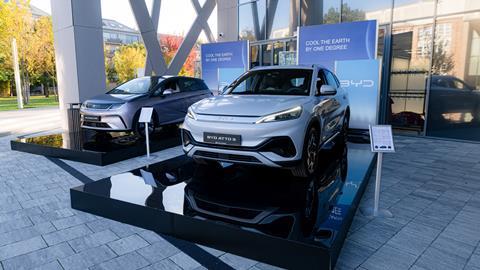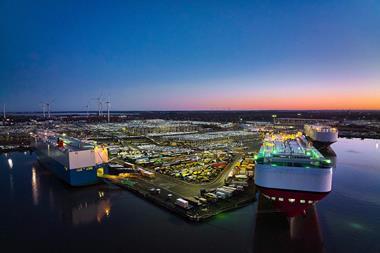Chinese electric vehicle maker BYD Auto reported global sales of more than 526,400 pure battery electric vehicles (BEVs) in 2023. Of that BEV sales figure, 13,000 units were sold in Europe in November alone, led by the Atto 3 model. The vehicle maker is now looking to localise passenger BEV production in Europe to increase its market share and has announced plans to build a passenger car factory in Szeged, Hungary.

The carmaker wants to significantly boost sales in Europe to account for up to 10% of all EV sales there by 2030, equal to around 800,000 vehicles a year, according to earlier comments by its European CEO, Michael Shu. Localising passenger car production in Hungary is a step toward hitting that target. The company already sells cars in Belgium, Denmark, France, Germany, the Netherlands, Norway and Sweden, and market analyst Statista reported that BYD’s revenue from European sales is projected to reach $3m this year. BYD can sell its BEVs at a higher price in Europe than it does in China and still remain competitive.The analyst forecasts that BYD unit sales will climb to 72,000 by 2028.
China targets Europe
Chinese EV makers have been targeting sales in Europe with price-competitive models and BYD has been doing well in supplying the fleet market. The result is that nearly half the EVs exported from China are now sold in Europe, according to the Financial Times, though that includes non-domestic EV makers, including Tesla. Nevertheless, according to Schmidt Automotive Research, Chinese brands exported 280,000 vehicles to EU in the first ten months of last year. However, exports from China have been affected by ro-ro capacity shortages and, at the same time, the European Commission has launched an anti-subsidy investigation into the import of BEVs from China to determine whether BEV value chains in China benefit from illegal subsidisation and what threat that poses for BEV producers in Europe. Both issues could be solved by localised production.
BYD, which China’s biggest EV maker, said it will now build an assembly plant in Hungary, the first plant of its kind to be built by a Chinese carmaker in Europe (though it does already have a bus manufacturing plant in Komárom, also in Hungary).
BYD said production at the new passenger car facility in Hungary will be highly automated, adding that it will use its expertise in integrated vertical supply chains to meet environmental targets. Further details of the plant, and whether BYD will be building its own adjacent battery facility, are yet to be revealed.
BYD said it had made progress in launching its brand in Europe and has spent the last year setting up a network of 230 retailer stores across 19 countries. It established sales operations in Hungary in October last year. It has introduced five new models in Europe: Han, Tang, Atto 3, Seal and Dolphin, spanning the C to E segments. It said it also planned to launch three new models in Europe in the next 12 months.
In November last year the carmaker made its 6 millionth vehicle at the Zhengzhou factory in China and reported overall global vehicle sales for 2023 at 3.02m. The carmaker also makes plug-in hybrid vehicles.

























![Global[1]](https://d3n5uof8vony13.cloudfront.net/Pictures/web/a/d/s/global1_726550.svgz)













1 Reader's comment